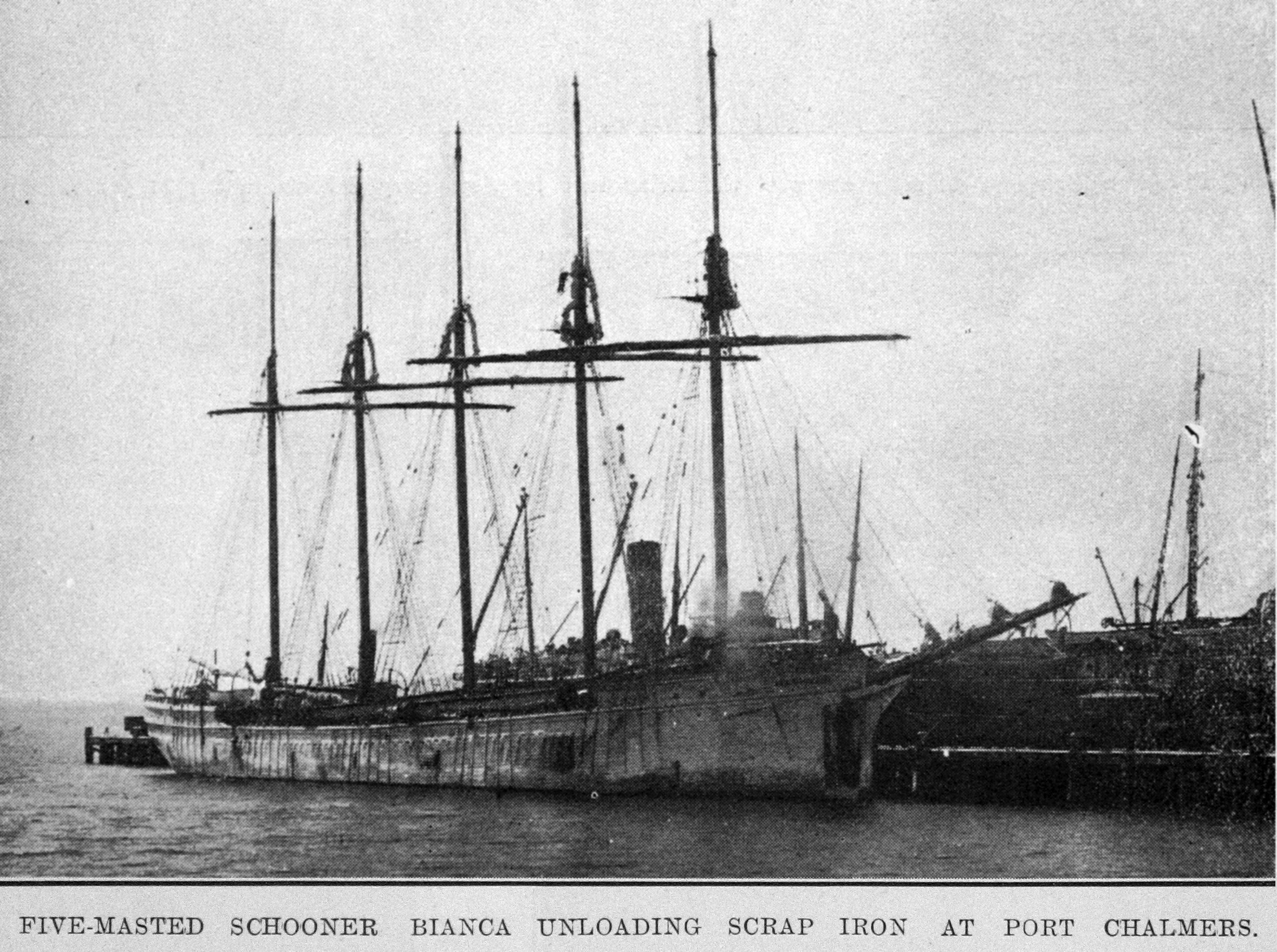
Shipping: The discharging of 2500 tons of scrap iron from the American schooner Bianca was started at Port Chalmers yesterday afternoon. It is expected to have the scrap iron discharged in three weeks.
Art Society exhibit a keeper
There are two pictures that stand out from the others amongst the oil paintings in point of merit, and it is cheering to note that, notwithstanding that the prices asked are above, those usually quoted at such displays (100 guineas and 50 guineas respectively), they have both. found purchasers. The higher-priced painting (“The Defence Minister’s Telegram,” by A.H. O’Keefe) has, we understand, been secured for the Art Gallery, and this is as it should be. It is easily the finest figure work in the exhibition, and is regarded as the best that has been seen at similar displays for many years. It represents an elderly man, holding in his hand a telegram, presumably announcing the death of a near relative. His head is bowed, and his whole attitude betokens grief, while the expression of the face bespeaks an anguish that there is no reason to conceal.
Good save by Oamaru brigade
A serious outbreak of fire was discovered in the Commercial Buildings, at the corner of Thames and Eden streets, Oamaru, about 1.30 on
Saturday morning (says the Mail). When the flames were first noticed they had a strong hold, and, though the fire brigade arrived on the scene very shortly after the alarm was given, it was at once apparent that the men had a big task in front of them. The fire was then burning fiercely in a portion of the ground floor of the buildings and along the whole of the upper portion. Fortunately there was not much wind at the time, and with the assistance of a good supply of water the brigade soon had the outbreak under control, although a considerable time elapsed before the fire was completely extinguished. The brigade put up a very creditable performance, a remarkably good save being effected.
Australia approves guinea pigs
Sydney: Among other decisions reached at the Plague Conference was one that the risk of infection from bubonic or septicaemic cases of plague is negligible. Such cases may be treated safety in the isolation wards of the general hospitals. It is not essential that plague cases should be treated in isolation hospitals distant from the centres of population. The use of guinea pigs to detect the presence of plague fleas in infected areas was approved, as the effective destruction of fleas is regarded as an essential part of the measures to be taken with respect to infected premises. A recommendation was approved that the present precautionary preventive regulations suggest a number of stringent measures for strengthening and widening the scope of these regulations.
Kaikorai field trip for pupils
With a view to on-relating theoretical with practical knowledge the Fourth and Fifth Standard pupils of the Normal School journeyed to the Kaikorai Valley on Friday, where they visited the Burnside Freezing Works, the Southern Reservoir, and the Roslyn Mills. That the excursion was a pronounced success was clearly manifested by the intelligent interest shown by the pupils in all the departments of the industries
examined by them.
— ODT, 23.11.1921












